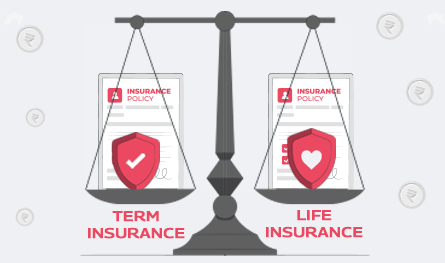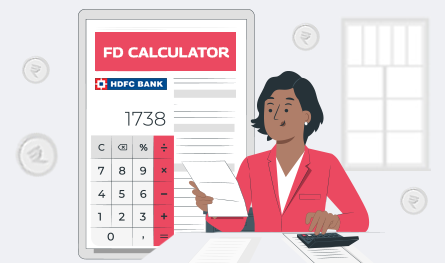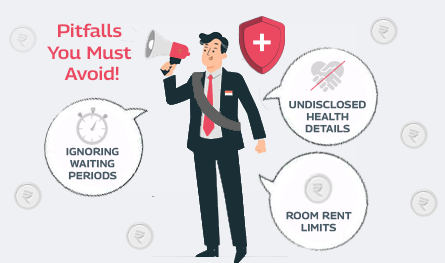The Impact of Mandatory Third-Party Insurance on Motor Insurance Penetration
.png)
Let’s say you are looking to buy your first bike or car. You are already thinking about the colour, the mileage, and how many customisations you can make within your budget. But the minute you hit the RTO office, there’s that box you cannot skip: third party motor insurance. It’s not a choice that you need to make – it’s the law. And while it might feel like another formality on a long list of paperwork, that tiny checkbox can have a massive impact on your financials.
This article will go over how mandatory third party motor insurance affects you.
.png)
Mandatory TP Insurance: What is in It for You?
You’ve probably wondered: why is third party motor insurance even mandatory? The answer is surprisingly simple. It’s meant to protect others from the damage your vehicle might cause, whether that’s to someone’s car, bike, or physical safety. But please don’t shrug it off as something that doesn’t benefit you. Without it, a single accident could cost you lakhs in compensation.
You can think of TP insurance as your financial firewall. It covers legal liabilities and compensation claims made by third parties involved in an accident with your vehicle. And since India sees over 1,317 road accidents every day, having this coverage is more than just following the rules; it’s financial common sense. [1]
What is Actually Mandatory – And What’s Not
You need to understand what the rule about third party insurance is. The government mandates that you have third party motor insurance in place, not complete coverage. This means you are legally compliant even if your own insured vehicle is not protected against theft, fire, or any other accidental damage. That is where comprehensive motor insurance comes in. It is optional, but highly recommended if you care about your insured vehicle.
However, mandatory third party insurance acts as a starting point. It gives insurance providers an entry ticket to upsell better protection. And for you, that means more custom coverage options at competitive prices.
What Happens If You Skip It?
Still thinking of skipping your third party motor insurance? That decision could cost you:
- Up to Rs. 2,000 in fines (for a first offence), and up to Rs. 4,000 for repeat offences. [2]
- Legal consequences in case of an accident.
- A police report or claim could get rejected if you’re uninsured.
Plus, driving without third party insurance is like walking into a boxing ring blindfolded. The risk is not really worth the thrill of evading the law.
How Mandatory Insurance Boosted Motor Insurance Penetration?
When third party insurance became non-negotiable, it shifted the mindset of millions of vehicle owners. No longer optional, third party motor insurance brought in first-time policyholders who had never considered car insurance before. This one requirement dramatically expanded the insurance net.
And the real surprise? It is not just urban users who have benefited from this shift. Thanks to increasing digital adoption and easier mobile-based purchase options, people in rural and semi-urban areas are finally entering the motor insurance fold.
In fact, rural regions now account for a significant share of new motor insurance policy issuances. Farmers, delivery riders, and small-town shopkeepers with scooters and tractors are now protected in ways they never were. And this is good news for you, too:
- Insurance spreads across geographies, reducing claim fraud hotspots.
- More participants in the insurance pool can lead to reduced premiums in the long run.
- It builds infrastructure trust, making roads and services safer for all.
This ultimately translates into more accessible insurance options and smoother claim processes. Plus, as third party penetration grows, overall sector growth fuels better customer service, diversified products, and increased awareness about full motor insurance benefits. In essence, mandatory TP insurance didn’t just tick a legal box—it opened the floodgates to a more insured India.
How Technology Helps This Change
It is not just government mandates that are fuelling this change. Insurtech platforms have made it insanely easy to buy or renew a motor insurance policy - often in less than 5 minutes. A few clicks and you’re good to go. Here’s how:
- QR-coded policies now eliminate the need for physical paperwork.
- Mobile reminders help you renew without missing a beat.
- Integration with VAHAN and RTO systems makes enforcement and verification seamless.
For you, this means less hassle, quicker compliance, and more control.

Author Bio
Paybima Team
Paybima is an Indian insurance aggregator on a mission to make insurance simple for people. Paybima is the Digital arm of the already established and trusted Mahindra Insurance Brokers Ltd., a reputed name in the insurance broking industry with 17 years of experience. Paybima promises you the easy-to-access online platform to buy insurance policies, and also extend their unrelented assistance with all your policy related queries and services.
Other Motor Insurance Products
Latest Post

Insurance decisions can be confusing. Especially, when you're staring at two plans that sound almost identical but do very different things. Term insurance promises high coverage at a low price, but no money back if you survive. Life insurance, on the other hand, may come with savings, returns, and bonuses, but it often comes at a higher cost.


Fixed Deposits (FDs) are one of the safest ways to grow your savings. HDFC Bank offers attractive FD interest rates, allowing you to earn guaranteed returns on your investment. But before you invest, it's important to know how much interest you will earn and what your final maturity amount will be.


Health insurance plans are purchased with the hope of medical protection in times of need. However, sometimes it ends up being a source of surprise and disappointment. This mostly happens when people rush to buy health insurance plans, often overlooking essential aspects. Ignoring waiting period clauses, misunderstanding exclusions, and being unaware of sub-limits can lead to unwanted problems in the future.


If you think of life insurance, chances are you are picturing something people buy in their 30s or 40s. But what if you are 65 or older and just getting started? The good news is that you are never too late. Whether you are thinking of easing the financial burden on your family, covering final expenses, or simply leaving behind a legacy, there are life insurance options tailored just for you.
This article will be a guide to life insurance for senior citizens above 65 years, explaining why it is important, the type of insurance options, and how to get the right policy for you.

.png)
Insurance is one of the significant as well as critical aspects that everyone should know and understand. If you are unsure about the various types of insurance available and their tax benefits, read on to know more.




